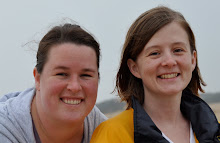
I just finished Practically Perfect in Every Way by Jennifer Niesslein, who happens to be the editor and co-creator of of Brain, Child. Niesslein wrote the book while conducting a series of what she calls experiments, with the goal of being happier. She breaks her life into compartments, such as home, marriage, parenting, finances, etc. and reads self-help books to try and improve her life in each area. I am not a stranger to self-help books, especially of the parenting variety, so I can understand believing that a book or an expert is going to be able to give you all the answers you need to "fix" your life.
Niesslein writes with a lot of humor and is very smart to boot, but I think part of what makes her book so interesting is how honest she is about her life. She is not afraid to admit her shortcomings and gives her readers not just the jist of each book, but how it affected her. I do think the book was a little long and started to drag towards the end, but it finished strong. What has stuck out in my mind the most about this book, is how Niesslein says that self-help can really make you focus too much on yourself and get stuck in your own head way too often. If this book has a message, it is that happiness is not found in focusing on yourself, but in contributing to the greater good.
Out of the 30 or more books and websites that Niesslein describes in her book, there are two I want to read: Authentic Happiness by Martin Seligman and When Bad Things Happen to Good People by Harold Kushner. I want to read Authentic Happiness, because I feel like happiness is a very slippery thing and I want to learn how to hold on to it a little better. In Practically Perfect, Niesslein describes how Seligman describes the difference between pleasure and gratifcation, which I found very intriguing. I think Kushner's book might actually help me to deal with some of the questions I have had about spirutuality and faith. I will try and take Niesslein's advice though, and not get too wrapped up in my own introspection to pay attention to what is going on around me.


